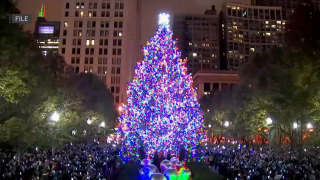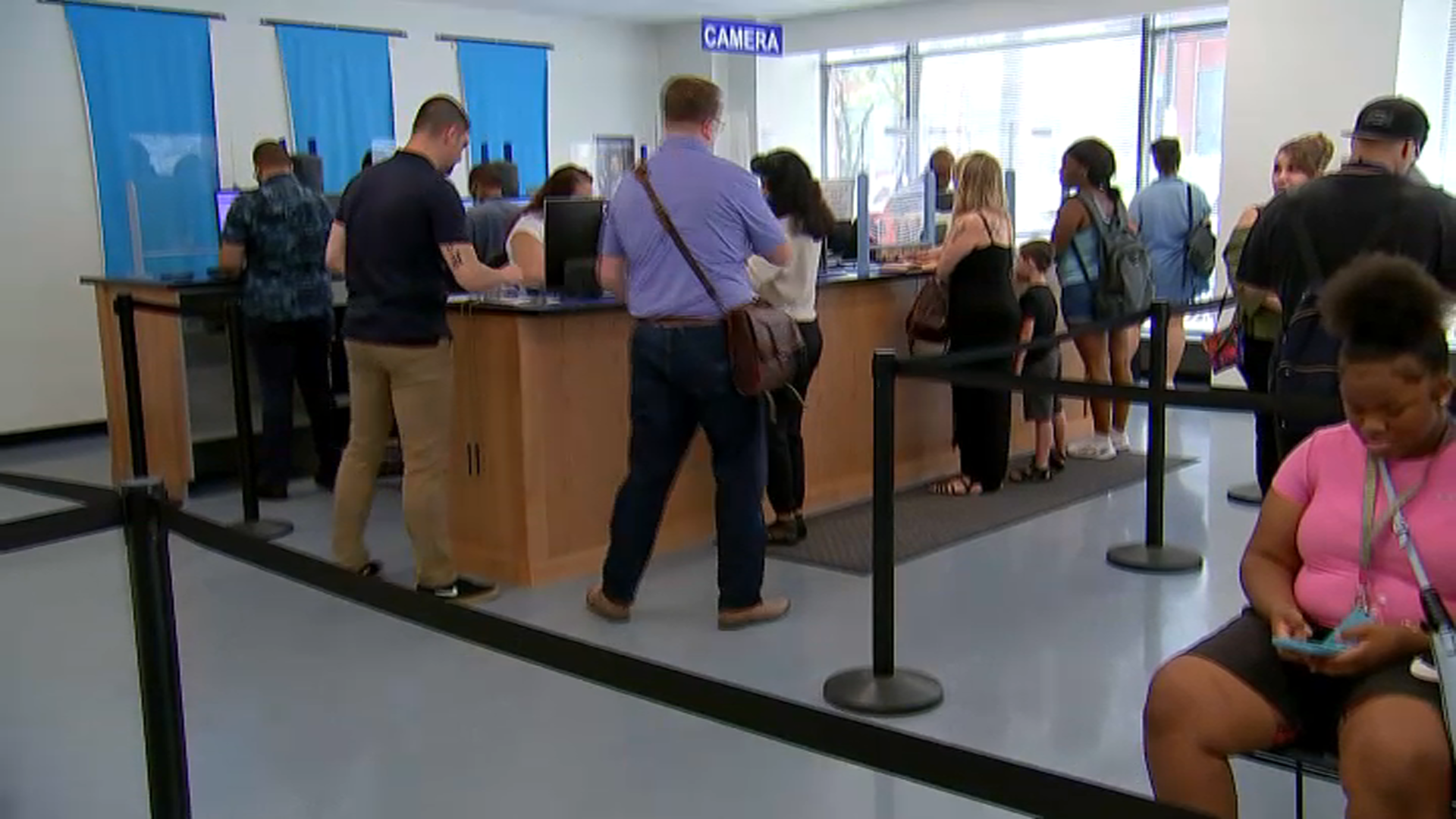
We’re three weeks away from Christmas, but it’s never too early to take a look back at the weather we can typically expect on the holiday.
Of course, most residents will be eagerly checking the forecasts in the days before Christmas to see if the city will have a “White Christmas” this year, but how often does that happen?
According to the National Weather Service, a “White Christmas” is defined as a holiday where there is at least one inch of snow on the ground, regardless of whether that snow fell on Christmas Day.
Data from the NWS shows that Chicago has had a “White Christmas” approximately 41% of the time since recordkeeping began in 1884.
That number includes last year, when there was one inch of snow on the ground for the holiday, according to the NWS weather almanac.
The most snow Chicago has ever received on Christmas Day itself was 5.1 inches of accumulation, a mark that was set back in 1950.
The following year, Chicago recorded its largest snow depth, with 17 inches of snow on the ground for the holiday.
Local
According to NWS data, the city of Chicago has recorded snowfall on approximately one-third of the Christmas Days since recordkeeping began.
The city has not had a measurable snowfall on Christmas since 2017, according to NWS data. Even then, only 0.1 inches of snow fell on the holiday, barely above a “trace” accumulation.
Feeling out of the loop? We'll catch you up on the Chicago news you need to know. Sign up for the weekly Chicago Catch-Up newsletter.
In terms of temperature, the average high temperature on Christmas Day in the city of Chicago is 34 degrees, with an average low of 22 degrees.
The warmest temperature ever recorded on Christmas in Chicago, dating back to 1871, is 64 degrees, which was hit in 1982.
The coldest high temperature recorded in Chicago on Christmas actually came the following year in 1983, with a high temperature of negative-5 degrees. The low temperature that day was a positively frigid negative-17, the coldest temperature ever recorded on Christmas.
In 2022, Chicago’s high temperature was only 14 degrees, making it the seventh-coldest Christmas on record.
For what lies ahead, it is still too early for even long-range forecast models to accurately predict what will occur in Chicago, but climate projections show that the city is likely to experience warmer-than-normal temperatures during the winter due to the ongoing El Niño event in the Pacific Ocean.



